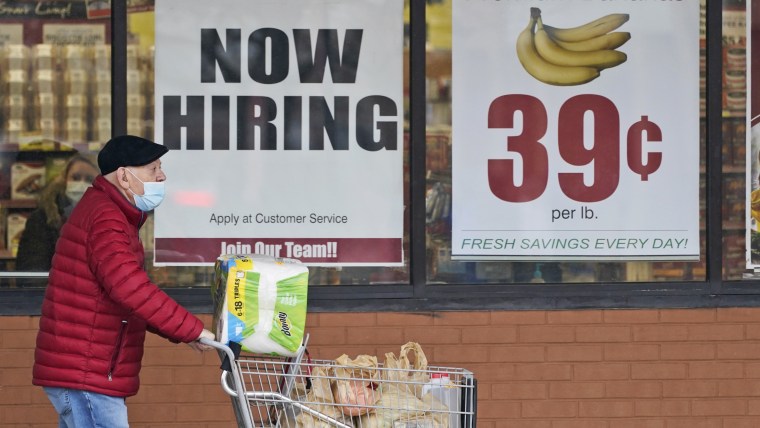The Republican governors of Ohio and Georgia announced on Thursday their respective states will opt out of receiving federal enhanced unemployment benefits, joining a growing list of GOP-led states dropping the pandemic-related benefit.
"To build on our momentum, accelerate a full economic recovery, and get more Georgians back to work in good-paying jobs, our state will end its participation in the federal Covid-19 unemployment programs, effective June 26th," Georgia Gov. Brian Kemp said in a statement, citing a workforce shortage. "As we emerge from this pandemic, Georgians deserve to get back to normal – and today’s announced economic recovery plan will help more employees and businesses across our state do so."
Ohio Gov. Mike DeWine said in a Thursday tweet that the program was meant to be temporary and also set a June deadline for the program, which was passed by Congress and gives unemployed Americans an extra $300 a week in unemployment benefits.
"When this program was put in place, it was a lifeline for many Americans at a time when the only weapon we had in fighting the virus was to slow its spread through social distancing, masking and sanitization," DeWine said, also citing labor shortages. "That is no longer the case. That is no longer our only tool in this fight. This assistance was always intended to be temporary."
The moves came on the same day the Centers for Disease Control and Prevention announced that people who are fully vaccinated against Covid-19 no longer need to wear masks or physically distance. The CDC guidance includes both indoors and outdoor circumstances in most cases.
As of May 13, more than a dozen Republican governors have halted the program. The states include Montana, South Carolina, Alabama, Iowa, Idaho, Missouri, Wyoming, Mississippi, Arkansas, Tennessee, Utah, and North Dakota.
Many of the governors have said the enhanced benefit disincentivizes workers and, since the vaccine has become widely available, this is the best way to correct work shortages. However, economic experts have said it is premature to cut the pandemic-related unemployment program, given that 10 million people are still out of work, according to the U.S. Labor Department, and access to the vaccine remains an issue for some Americans.
The Century Foundation, a nonprofit, progressive public policy think tank, also estimated in a recent study that 895,000 workers would be affected in the 12 states that have already announced ending pandemic benefits programs, cutting off nearly $5 billion in aid. The study also noted that if all of the Republican governors were to pull out, those totals would affect roughly 4.8 million workers.
Another issue prompting lawmakers to end the program is the disappointing April employment report, which found that the economy gained only 266,000 jobs despite widespread forecasts that the number would top 1 million and that the report would show strong payroll growth after widespread vaccinations spurred Americans to return to activities like dining out and traveling.
The unemployment rate rose from 6 percent to 6.1 percent, which was also contrary to expectations but still down from a peak of 14.8 percent in April 2020, the highest level since the Great Depression. The U.S. Chamber of Commerce has also blamed the $300-a-week federal benefit for the sluggish report.
The White House has taken steps to clarify rules around who can receive unemployment benefits and also urge American businesses to increase pay to get people back to work.
"We're going to make it clear that anyone collecting unemployment who is offered a suitable job must take the job or lose their unemployment benefits," Biden said in a speech on Monday.

